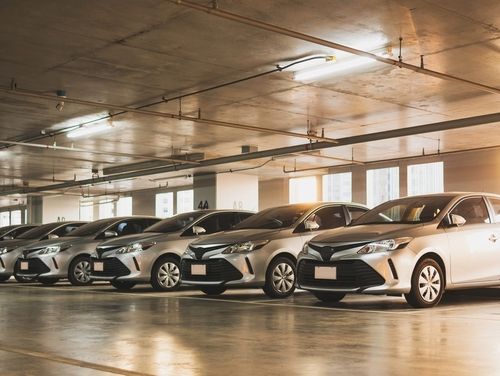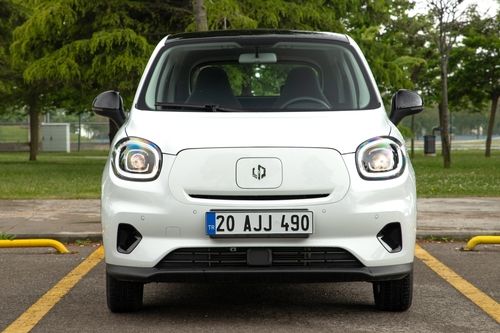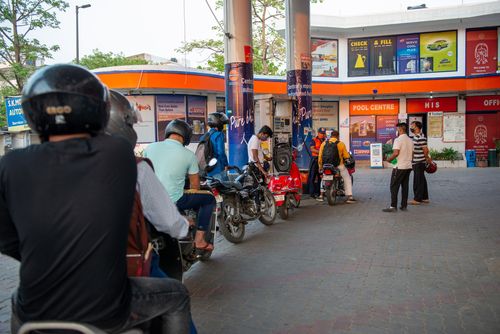Everything You Need to Know About Motor Vehicle Insurance Fines
Written by Upstox Desk
Published on May 27, 2025 | 5 min read

Ritika beamed with pride as she showed her father the neatly organised folder of her financial documents. "Look, Papa! I've filed my taxes, started investments, even sorted my health insurance," she said confidently. Her father chuckled, took the file, and flipped through the pages. "Is some of it in another file?" he asked casually. Slightly offended, she replied, "Why would you say that? Everything's right here, perfectly arranged."
With a knowing smile, he asked, "So, where's your car's motor insurance?" Ritika paused and replied, "I didn't get one. I barely drive it, and I have an emergency fund in case of any unexpected expenses." Her father laughed softly, "I hope your emergency fund covers legal penalties and fines, too, for not following motor insurance laws." Ritika stared at him, realising she'd overlooked something crucial in her perfect plan, and frantically started calling her insurance agent to get it sorted as soon as possible.
Most people usually confuse the rules behind motor vehicle insurance with the idea of having a term or life insurance policy. While, in a broad sense, the primary purpose of having an insurance policy is to ensure financial stability in the event of unfortunate circumstances, having a term or life insurance policy differs significantly from having a motor insurance policy. While having a term or life insurance policy is a financially wise decision, it is ultimately up to the buyer's discretion whether they want a policy or not, and if they do, what kind of policy they prefer.
However, there is no such buyer discretion in the case of a motor insurance policy, at least not unless the minimum insurance limits are met. According to Indian Law, all vehicle owners are required to have a minimum level of insurance coverage for each vehicle. In certain cases, not having the same, even for a few days or hours, can result in serious repercussions and hefty fines.
Why Is Motor Insurance Compulsory?
When made aware that having a motor insurance policy is not optional, many people feel they have been tricked into spending money they do not want to. Their logic is that if we hit our vehicle, we will be responsible for the financial cost of repairing it. What does the government have to do with it? When considered from their standpoint, the reasoning sounds valid. Just like a term insurance policy, it is their risk to bear. So what if they are unprepared for the financial difficulties that may arise? It is a concern for them.
However, there is a fundamental difference between the two situations. As devastating as it may be, the financial difficulties faced in the case of an individual's death are only their families' to shoulder. However, when a person is driving a vehicle, they are responsible for the safety of other people on the road, whether fellow drivers, pedestrians, or anyone else. The added responsibility of people on the road is why motor insurance policies are compulsory.
So, having a comprehensive motor insurance policy ensures that if you have been in an accident, you and the other people or property involved are at least financially covered. The policy also comes in handy if the accident results in any medical or legal claims made regarding the accident. However, the benefits do not end there, as a comprehensive motor insurance policy will protect you from the financial repercussions and damages caused by an accident, including theft, vandalism, or a natural disaster.
Motor Vehicle Insurance Fines
It is no secret that driving a car without valid insurance in India is a legal offence and will result in legal trouble and financial penalties. So, let's have a look at the fines and penalties you might have to deal with if you are caught in an offence of these laws:
First Offense
When caught driving without proper motor insurance for the first time, the fines are not that high. The fine for the first offence is just INR 2,000, set low to act as a warning and highlight the importance of staying insured.
Second Offense
Unlike in the case of the first offence, the law is not very lenient with people who repeat the mistake, and the consequences become more severe. Therefore, in case of the second offence, the fine can go up to INR 4,000, and you may even face up to three months of imprisonment.
Vehicle Impoundment
Driving without insurance could result in your vehicle being impounded, in addition to fines and jail time. It can also create further complications, such as difficulties renewing your car's registration or obtaining other official permits. These penalties are designed to ensure that every vehicle on the road is adequately insured.
What Decisions Can A Policy Make?
Having an insurance policy is mandatory by law, and deviation from this requirement can result in severe repercussions, including hefty fines and penalties, which may suggest that the policyholder has no decision-making power. However, that is not true. The policyholder holds the primary decision-making authority. They decide which policy they want, which insurance company to choose, and whether they want any additional riders or add-ons. All they have to do is ensure they meet the criteria set by the government for the kind of vehicle they are insuring. The rest is up to them to decide.
In Crux
If you are a vehicle owner, avoid the common mistake of not insuring your vehicle as required by law. Comprehensive vehicle insurance ensures that you are financially covered for any damage done to your vehicle, whether caused by accident, theft, vandalism, natural disasters, or any other valid reason. It also ensures that you stay compliant with the law. Non-compliance with the motor insurance law can result in substantial fines and penalties, further exacerbating an already challenging situation.
FAQs
-
Is third-party insurance enough to avoid fines in India?
Yes, third-party insurance is the minimum legal requirement in India and helps you avoid fines for non-compliance.
-
Can I renew an expired motor insurance policy online?
Yes, most insurers allow online renewal; however, you may need to undergo a vehicle inspection if the policy has lapsed for an extended period.
-
Does car insurance cover damages from floods or earthquakes?
Only comprehensive motor insurance covers natural calamities, such as floods or earthquakes, whereas third-party policies do not.
-
Will my insurance be valid if someone else drives my car?
Yes, insurance remains valid as long as the driver has a valid license and the policy does not restrict named drivers.
-
Can I transfer my car insurance when I sell my vehicle?
Yes, car insurance can be transferred to the new owner along with ownership, but it must be done within 14 days.
About Author
Upstox Desk
Upstox Desk
Team of expert writers dedicated to providing insightful and comprehensive coverage on stock markets, economic trends, commodities, business developments, and personal finance. With a passion for delivering valuable information, the team strives to keep readers informed about the latest trends and developments in the financial world.
Read more from UpstoxUpstox is a leading Indian financial services company that offers online trading and investment services in stocks, commodities, currencies, mutual funds, and more. Founded in 2009 and headquartered in Mumbai, Upstox is backed by prominent investors including Ratan Tata, Tiger Global, and Kalaari Capital. It operates under RKSV Securities and is registered with SEBI, NSE, BSE, and other regulatory bodies, ensuring secure and compliant trading experiences.

























